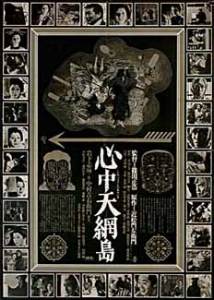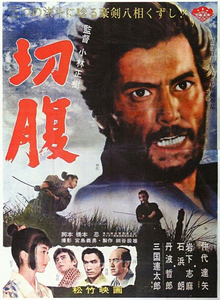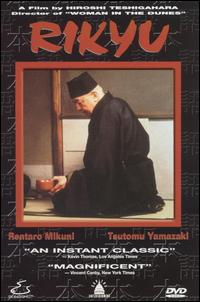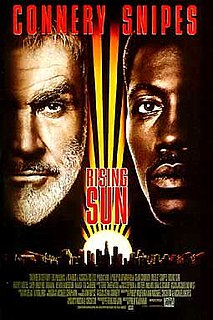 W
WAlone Across the Pacific is a 1963 color (Eastmancolor) Japanese adventure film directed by Kon Ichikawa. It was entered into the 1964 Cannes Film Festival. The film is based on the book Alone on the Pacific , Kenichi Horie's account of his 1962 solo voyage across the Pacific, which was the first successful Transpacific solo voyage.
 W
WAssassination , also known as The Assassin, is a 1964 film directed by Masahiro Shinoda.
 W
WBad Boys is a 1961 Japanese pseudo-documentary drama film about juvenile delinquents, written and directed by Susumu Hani. It is based on the novel of the same name by Aiko Jinushi.
 W
WBlack Rain is a 1989 Japanese drama film by director Shōhei Imamura, based on the novel of the same name by Masuji Ibuse. The story centers on the aftermath of the atomic bombing of Hiroshima and its effect on a surviving family.
 W
WDodes'ka-den is a 1970 Japanese film directed by Akira Kurosawa, based on a book by Shūgorō Yamamoto. It was Kurosawa's first film in color.
 W
WDouble Suicide is a 1969 film directed by Masahiro Shinoda. It is based on the 1721 play The Love Suicides at Amijima by Monzaemon Chikamatsu. This play is often performed with puppets. In the film, the story is performed with live actors but makes use of Japanese theatrical traditions such as the kuroko who invisibly interact with the actors, and the set is non-realist. The kuroko prepare for a modern-day presentation of a puppet play while a voice-over, presumably the director, calls on the telephone to find a location for the penultimate scene of the lovers' suicide. Soon, human actors substitute for the puppets, and the action proceeds in a naturalistic fashion, until from time to time the kuroko intervene to accomplish scene shifts or heighten the dramatic intensity of the two lovers' resolve to be united in death.
 W
WEmpire of Passion is a 1978 French-Japanese film produced, written and directed by Nagisa Ōshima, based on a novel by Itoko Nakamura. The film was a co-production between Oshima Prods. and Argos Films. It was released in France as Fantom Amour.
 W
WThe Face of Another is a 1966 Japanese New Wave film directed by Hiroshi Teshigahara and based on the 1964 novel of the same name written by Kōbō Abe. The story follows engineer Okuyama, who suffered severe facial burns in a work-related accident and is given a new face in the form of a lifelike mask.
 W
WFire Festival is a 1985 Japanese drama film directed by Mitsuo Yanagimachi. It was screened in the Un Certain Regard section at the 1985 Cannes Film Festival.
 W
WHarakiri is a 1962 Japanese jidaigeki drama film directed by Masaki Kobayashi. The story takes place between 1619 and 1630 during the Edo period and the rule of the Tokugawa shogunate. It tells the story of the rōnin Hanshirō Tsugumo, who requests to commit seppuku (harakiri) within the manor of a local feudal lord, using the opportunity to explain the events that drove him to ask for death before an audience of samurai. The film continues to receive critical acclaim, often considered one of the best samurai pictures ever made.
 W
WIllusion of Blood is a 1965 Japanese drama and horror film directed by Shirō Toyoda.
 W
WInn of Evil is a 1971 Japanese film directed by Masaki Kobayashi. The film set during the Tokugawa Shogunate and is about a tavern in Edo which smugglers use as a base of operations. The film was adapted from the novel Fukagawa anarakutei by Shugoro Yamamoto. The film received four awards at the Mainichi Film Concours, including Best Actor and Best Score.
 W
WKwaidan is a 1965 Japanese anthology horror film directed by Masaki Kobayashi. It is based on stories from Lafcadio Hearn's collections of Japanese folk tales, mainly Kwaidan: Stories and Studies of Strange Things (1904), for which it is named. The film consists of four separate and unrelated stories. Kwaidan is an archaic transliteration of the term kaidan, meaning "ghost story". The film won the Special Jury Prize at the 1965 Cannes Film Festival, and received an Academy Award nomination for Best Foreign Language Film.
 W
WRan is a 1985 epic action drama film directed, edited and co-written by Akira Kurosawa. The plot derives from William Shakespeare's King Lear and includes segments based on legends of the daimyō Mōri Motonari. The film stars Tatsuya Nakadai as Hidetora Ichimonji, an aging Sengoku-period warlord who decides to abdicate as ruler in favor of his three sons.
 W
WRikyu is Hiroshi Teshigahara's film about the 16th century master of the Japanese tea ceremony, Sen no Rikyū. The film was adapted from the novel of Yaeko Nogami.
 W
WRising Sun is a 1993 American buddy cop crime thriller film directed by Philip Kaufman, who also wrote the screenplay with Michael Crichton and Michael Backes. The film stars Sean Connery, Wesley Snipes, Harvey Keitel, and Cary-Hiroyuki Tagawa. It was based on Michael Crichton's 1992 novel of the same name.
 W
WSamurai Rebellion is a 1967 Japanese jidaigeki film directed by Masaki Kobayashi. The film is based on Hairyozuma shimatsu, a short story by Yasuhiko Takiguchi.
 W
WWith Beauty and Sorrow is a 1965 Japanese drama film directed by Masahiro Shinoda. It is based on the novel Beauty and Sadness (1961–63) by Nobel Prize winning writer Yasunari Kawabata.
 W
WWoman in the Dunes or Woman of the Dunes is a 1964 Japanese New Wave drama directed by Hiroshi Teshigahara, starring Eiji Okada as an entomologist searching for insects and Kyōko Kishida as the titular woman. It received positive critical reviews and was nominated for two Academy Awards. The screenplay for the film was adapted by Kōbō Abe from his 1962 novel.